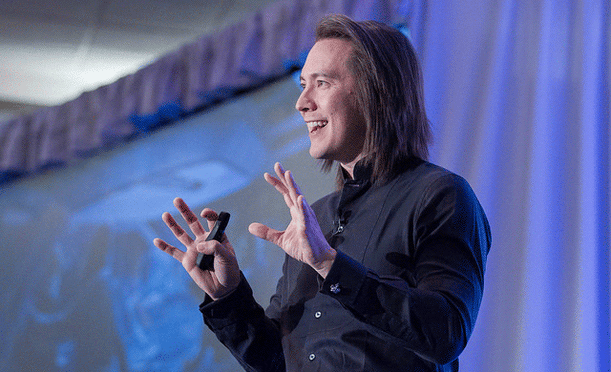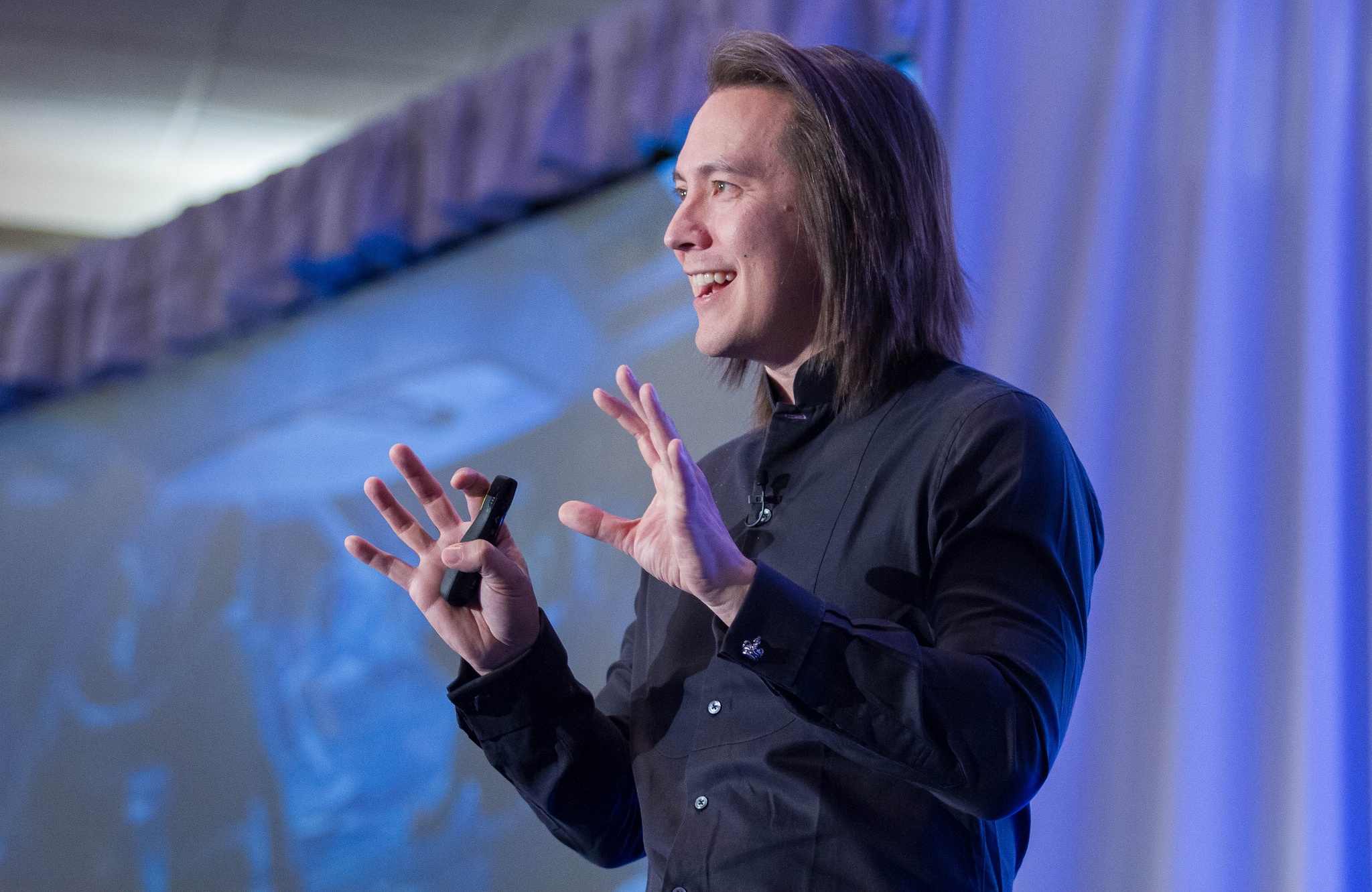
In a world blazing forward on the back of AI, algorithms, and automation, how can healthcare facilities leaders effectively prepare for the future?
At the Health Facilities Innovation Forum (now HealthSpaces), futurist Mike Walsh set out to answer this question with a look at the disruptive technologies on the horizon, and most importantly, how health systems can adapt in the age of machine intelligence.
What will drive the future of healthcare experiences?
Innovation is already upheaving traditional systems and operations in the world. From the way we work in our individual offices to the landscape of entire industries, many of these big changes are in fact driven by the changes we’re going through as human beings.
We’re living in a world dominated by artificial intelligence and technological interactions. Smartphones, smart sneakers, smart tattoos—it’s just the beginning. And this smart tech is going to become more and more ingrained in our daily lives.
The next generation is going to be molded by AI. For them, the customized, data-driven experiences that are emerging today will be expected as standard, even in healthcare.

It’s this new generation of patients that healthcare facilities need to prepare for. This requires us to head back to the drawing board and re-imagine the way we provide medical services.
“If you want to understand what’s coming next, the thing you have to pay the most attention to is not technology at all. It’s people.”
What’s the first step to understanding these future patients? Walsh suggests talking to kids. “If you’re going to pay attention to the future, the most useful place to start is with the people that are going to be living in it,” said Walsh. Host a “Generation Workshop” in which you invite kids to share their perspectives. Ask them how they expect they’ll be using tech to monitor and manage their health. Their answers will give you a good look at what future patients will consider must-haves of the healthcare services they use.
What does it take to become a 21st-century organization?
It’s true that the influence of machines is overwhelming, but healthcare is still very much a human domain. Tech may have transformed your organization, but culture is still your operating system. That’s why in order to get an agile, growth-oriented, high-performance workplace, you need to hack your culture.
It can be hard to develop an innovative culture in big organizations, so the best way to start “hacking” is from the very base: the individuals.
Seek out flexible thinkers, people who are open-minded and get excited by uncertainties. The types who value performance over process will uplift your organization’s culture into one that’s dynamic, adaptable, and future-ready.
Walsh also pointed out that an innovative culture is one that fosters collaboration. When juniors can easily talk to executives and doctors can brainstorm with programmers, that’s when healthcare facilities can achieve greater productivity and creativity. Removing communication barriers between departments and among hierarchies can be as simple as using internal chat messaging systems like Slack or WhatsApp.

One of the greatest tools we have for culture-hacking is data itself. Walsh suggested gathering some of your highest performing individuals or teams for a brainstorming session. Discuss with them how you can identify, track and visualize data about their workflows, collaborations, and even approaches to problem-solving. The results may be game-changing.
How much smarter will we need to be to survive even smarter machines?
With tech taking over so much of the analytic work done in medicine, there’s a big worry about automation replacing the need for human workers. But Walsh contends that replacement isn’t actually such a big threat, so long as we use tech to empower the work that humans do better.
Walsh asserted that we must accept the fact that our companies are data-driven—we’re all software companies now. We simply have to leverage our software to increase our productivity and work in more efficient ways.
It can be tempting for healthcare leaders to think that no change in course is needed if they’re already successful. But Walsh warned against this: everything that has made you successful up until now may be exactly what keeps you from making it in the future.
“I believe that the future is not an upgrade on the present. It’s an invitation for all of us to think in new ways.”
Here, again, data becomes one of our greatest tools. By applying data analysis to not only what you’re working on, but also how you work, you can uncover things that are holding your organization back, as well as major opportunities for growth.
During your next strategy meeting, try using real-time data and visualization tools to address the topics you’re discussing. Pay close attention to the effect these tools have on your team: perhaps problems that weren’t so apparent before become obvious to them, or different sources of data have a particular influence on the discussion and decision-making process.
Mind Grenades
Walsh also offered up what he calls “mind grenades”, huge questions that challenge us to take a hard look at our organizations and how we can improve. Next time you’re meeting with your team, pose these questions and see what discussion unfolds:
- After you’ve hired a new graduate, ask them: What do they find the most strange about the way your team works, makes decisions, and communicates?
- How easy it for your next generation of leaders and professionals to share and act on their vision of the future, with your current leadership?
- In the future, what kinds of roles will automation, AI, and algorithms take over in your team, and what will be the human capabilities most in demand?

Posted by
Collaborate with your Peers!
HealthSpaces is a community for people that plan, design, build and operate spaces where healthcare is delivered.
June 7-9, 2026 | Braselton, GA
Learn More




-4.png)
-Dec-09-2025-05-48-44-4379-PM.png)
-4.png)
-1.png)
-2.png)

Comments